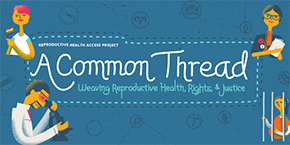Native American Heritage Month: Minnie Kellogg
 Laura “Minnie” Cornelius Kellogg was an activist, author, orator, and leader of the Oneida Nation of Wisconsin. To this day, Kellogg remains one of the most prominent – and controversial – figures in American Indian history, acting as a driving force behind political issues and land rights in the U.S. and Canada, founding the Society of American Indians, and organizing key movements. [1]
Laura “Minnie” Cornelius Kellogg was an activist, author, orator, and leader of the Oneida Nation of Wisconsin. To this day, Kellogg remains one of the most prominent – and controversial – figures in American Indian history, acting as a driving force behind political issues and land rights in the U.S. and Canada, founding the Society of American Indians, and organizing key movements. [1]
Born in 1880 on the Oneida Indian Reservation in Green Bay, Wisconsin, Kellogg came from a prominent lineage of tribal leaders and followed in their footsteps to play important roles across Iroquois politics, land claims, religion, and American Indian revitalization movements. She attended a private boarding school, Grafton Hall – mostly with non-Indian classmates – and graduated with honors in 1898. Kellogg always felt she benefitted from her education at Grafton Hall, as it meant she was not subject to the Bureau of Indian Affairs’ curriculum, which she criticized for its omission of Native Indian traditional practices and ideologies.
Kellogg’s career in activism began in earnest in 1903 when she helped to calm a brewing revolt by the Cupeño community that was being evicted by the Bureau of Indian Affairs from their original home in California. Kellogg managed to persuade the Cupeño Indians against resisting their eviction and was praised by many within and outside of the Native American community for preventing the uprising.
A few years later, Kellogg embarked on a two-year journey through Europe, during which she acted as the informal voice of the Oneidas and Six Nations of the Iroquois abroad. While traveling through Germany, France, and England, she became particularly interested in the garden city movement of urban planning; a movement inspired her Lolomi Plan, which aimed to generate economic self-sufficiency and self-governance among tribes and rebuke the corrupt Indian Bureau of Affairs.
In 1911, Kellogg helped to found the Society of American Indians, which promoted unity among American Indians, regardless of tribal affiliation. The Society fought for Native American citizenship, was one of the first proponents of an “American Indian Day,” and pushed to open the U.S. Court of Federal Claims to all tribes and bands in the country. While Kellogg was often a polarizing figure and was dismissed from the society two years after its formation, no one could deny her inspiring vision, talent as an orator, and passion for organizing and politicizing Native American nations.
Kellogg and her husband later moved to Washington, D.C., to dedicate themselves to lobbying for Indian rights and better legislation – in doing so, she also became involved with the Blackfeet, Brothertown, Cherokee, Crow, Delaware, Huron, Osage, and Stockbridge Indians. She continued to push to dissolve the Bureau of Indian Affairs, promote her Lolomi Plan, and advocate for tribal self-rule outside of the U.S. government.
Repeated court losses of land claims led to in-fighting among the tribes as well as reduced faith in Kellogg’s vision. While her campaign lost momentum, Kellogg continued to advocate for the sovereignty of the Six Nations and the Iroquois until her death in 1947. [2]
While Kellogg’s legacy is controversial, dotted with lost court cases, land, and money, her Lolomi Plan has been realized in the continued success of the Oneida Tribe of Indians of Wisconsin, whose land holdings have reached over 18,000 acres and grown significantly in the past three decades. [3]
As we remember Minnie Kellogg and reflect on her constant efforts to fight for Native American rights, opportunities, and sovereignty, we must recognize that there is still much work to be done.
In particular, fracking, disruptive pipeline construction, racism and discrimination, and ongoing lack of access to comprehensive healthcare has continued to drive stark health disparities among Native American communities. In some states, the life expectancy of Native Americans is 20 years shorter than the national average. And, just three years ago, Indian Health Services finally updated its policy to require its facilities provide Plan B emergency contraception to customers – six years after it was approved by the FDA. [4, 5, 6] At RHAP, we will continue the fight to protect and expand access to reproductive health care that is affirming for all people.
